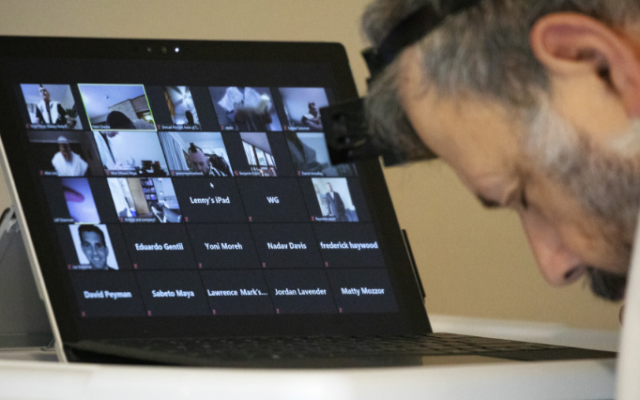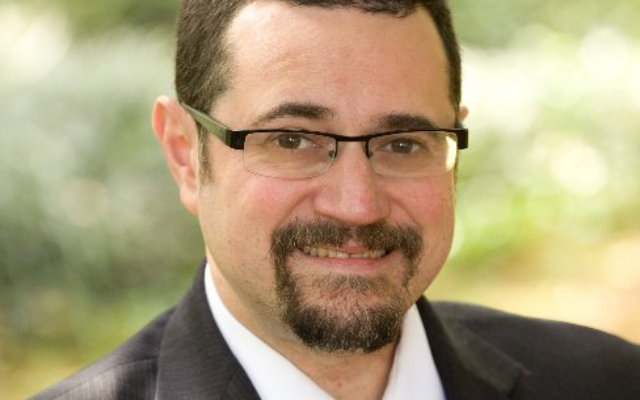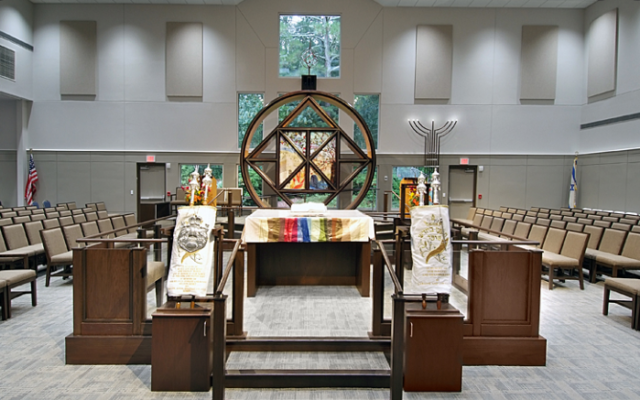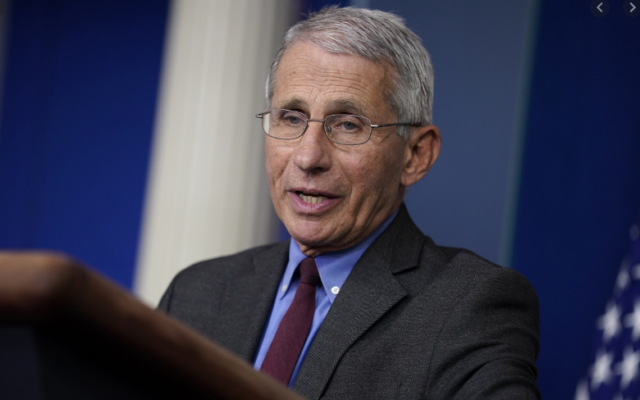Conservative Rabbis Approve Virtual Shabbat Worship
The Rabbinical Assembly’s opinion formalizes what has rapidly become standard practice in some Conservative synagogues. Rabbi Joshua Heller writes historic ruling.

The rabbinic arm of the United Synagogue of Conservative Judaism May 14 formally approved the use electronic devices to stream worship services on the Shabbat and on holidays.
The historic 30-page legal religious opinion or teshuvah by The Rabbinical Assembly’s Committee on Jewish Law and Standards was written by Rabbi Joshua Heller, senior rabbi of Congregation B’nai Torah in Sandy Springs.
“What this paper does is it gives it a roadmap for people who are thoughtful about Jewish observance to look at new technologies and think about how they might apply them while staying within the bounds of Jewish tradition,” Heller told the AJT.
The Sandy Springs synagogue, which has over 800 member-families,
bought a computer to use in its sanctuary soon after the synagogue was closed to the public in mid-March. It also hired a non-Jewish technician to facilitate Shabbat streaming each week. Still, Rabbi Heller, who comes from a family of rabbis that goes back nine generations, has mixed feelings about putting a screen on the bimah during Shabbat worship.
“I think that using electronic devices is very much against the letter and spirit of Shabbat, but I also recognize that without some sort of virtual communication for most of the members of my community, the Shabbat worship experience doesn’t really exist.”

The Rabbinical Assembly’s opinion formalizes what has rapidly become standard practice in some Conservative synagogues, where religious leaders and their congregants have wrestled with the issue of how to observe the letter of the law against the use of electricity on Shabbat and major holidays while at the time providing the crucial experience of group prayer. Orthodox synagogues have firmly opposed any use of electronics on Shabbat and holidays.
According to Heller, his Conservative religious law commentary could be particularly important for those congregations thinking about how to prepare for Rosh Hashanah and Yom Kippur, which begin Sept. 18.
“The high holidays are definitely a big driver of this because even a lot of congregations that can come up with other solutions for daily or weekly use are going be thinking about this for the high holidays.”

On May 7, Dr. Anthony Fauci, the director of the National Institute of Allergy and Infectious Diseases, the federal government’s point man during the COVID-19 pandemic, spoke in a conference call organized by the Orthodox Union. He indicated that the health crisis could still be very much with us during the high holidays. “As we get to the fall, there will almost certainly be virus,” he said.
Still, depending on local circumstances, Dr. Fauci indicated that synagogues might consider a partial re-opening, with limited daily prayer services.
In a statement released by The Rabbinical Assembly May 14, the CEO of the Assembly, Rabbi Jacob Blumenthal, noted that “restrictions on communal prayer will probably last for many months.” He urged his members to consider the religious legal decision in the wider context of these challenging times.

“We urge you to consider how to help your communities thrive during these times, rather than just survive,” he said.
Also May 14, the Centers for Disease Control and Prevention released the first set of guidelines that those communities can use to help them decide how to begin to re-open. Although the guidelines only were aimed at how to restart schools, restaurants, childcare centers and other businesses, it warned that all workplaces not reopen unless they could protect those employees who might be at higher risk because of age or pre-existing medical conditions.
Health experts generally have indicated that increased testing for the virus and contact tracing be a priority in any plan to reopen communities. A coalition of religious and community leaders, called Georgia Alive, was recently formed to resist plans to reopen the state prematurely.
Heller, whose synagogue formed a health advisory committee composed of medical experts, including a member of the CDC, is not eager to reopen.
“Many of the things that we do in synagogue involve lots of people being close to each other, including people who are potentially at high risk of getting COVID-19 and people who are at high risk of spreading it. And so our advisers have said that we synagogues should definitely not be among the first institutions to open.”
For now, like many in the Conservative movement and elsewhere pondering when to reopen, Heller and his congregation will be staying close to their computer screens during Shabbat and for important simchas.
In early May, the synagogue hosted its first bar mitzvah on Zoom, and next month, it’ll be having its first wedding during the health crisis outdoors, and online.



comments